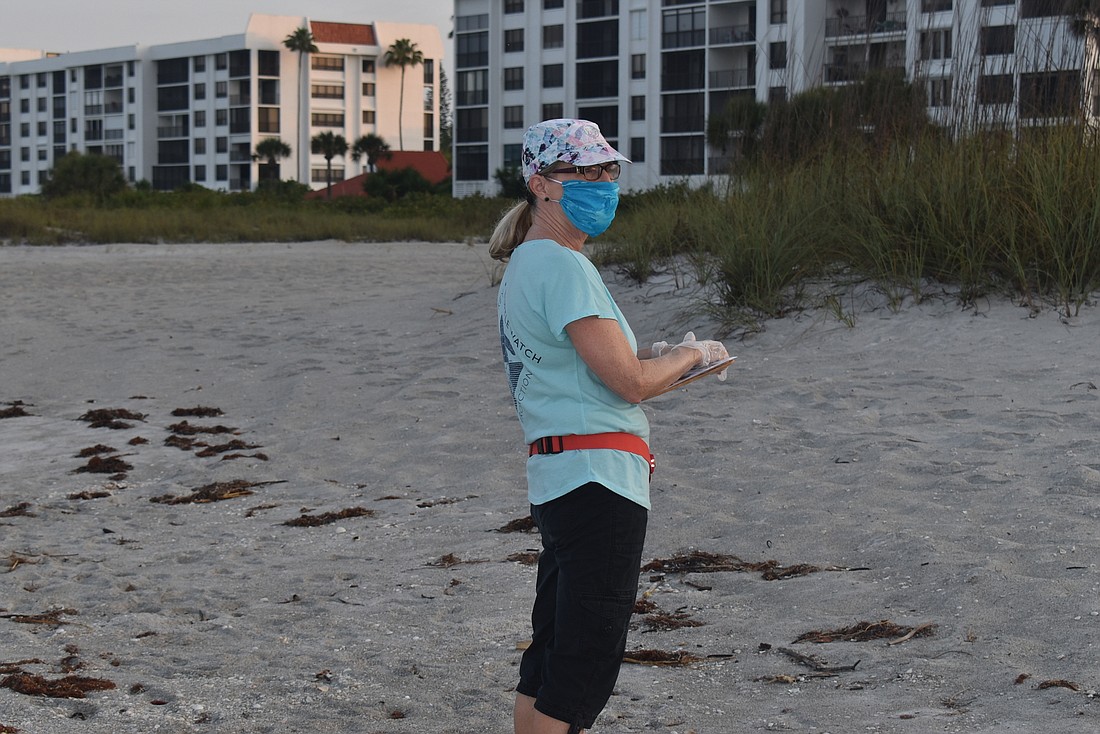- November 20, 2024
-
-
Loading

Loading

Human residents aren’t the only ones experiencing issues. As the peak of sea turtle nesting season approaches and hatchlings begin making their way towards the water, the turtles have run into some problems — sometimes literally.
Beaches have reopened and more people means more trash. Not only can that impede turtles, it can attract predators who could be tempted by the turtles. Pack it in and pack it out is the best policy.
Mote public relations manager Stephannie Kettle said she’s heard about more people on the beach at night this year. Not only are Longboat Key’s beaches closed by 9 p.m., but also, human interlopers cause a whole host of issues past dark, as nesting females come ashore to lay eggs then.
“Activity can startle females and cause them to do a false crawl or abandon their nest or even rush and not cover their nest very well,” Kettle said.
Lights on and facing the beaches must be off at night, as turtles use the light of the moon to find their way back to the water and can become disoriented with other lights, even the backlight on a phone screen. Once a turtle is disoriented, it’s hard to right its way — especially a hatchling. Keep all beachfront property dark — use blackout curtains, keep your flashlights off and turn off your phone.
“The pandemic has kind of created an interesting situation where it seems like there's more people here than normally at this time of year … some of those people that are here now are not normally here during season,” Kettle said. “Our routine has been totally disrupted, but they're still on schedule for what they normally do.”
The best policy is to leave turtles alone. Don’t go looking for them, don’t try to mark tracks if you walk the beach in the early morning, and leave nesting markers be.